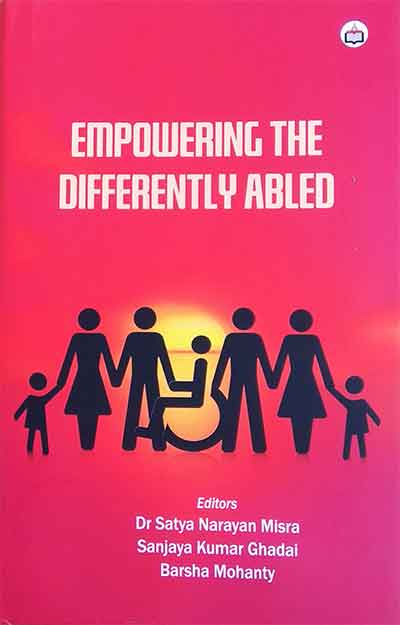
India has roughly five crore incapacitated people. Persons with Disabilities (PwD) could in fact be as high as 5 – 6% of the total population. Almost half of them are uneducated and a significant number of that populace lives in rural areas. Differently-abled people deserve to progress in all facets of life- whether it is physical, economic, or social. They need a committed environment to get a rightful place in society.
Society’s degree of participation is by and large measured by the attitude and process through which it cares for those on the fringes. A truthfully empathetic society makes allowances for such frailties in a non-intrusive, participative, and sensitive manner while ensuring equal opportunities.
Differently-abled individuals, specifically in rural areas in the country, face plenty of problems as compared to urban areas. Lack of understanding and sympathy for PwDs, the dearth of awareness, and education are the three biggest challenges.
The Government of India has been proactive in terms of empowering the differently-abled. Beginning with the Disabilities Act of 1995, several schemes and hosts of acts have been framed to ensure that these marginalized have plenty of opportunities to become self-reliant.
‘Empowering the Differently Abled’ is the latest book that dissects the problem of PwDs in all its hues and colors. Edited by Dr. Satya Narayan Mishra, Sanjaya Kumar Ghadai, and Barsha Mohanty, this volume is a pioneering effort because of its sweeping understanding and originality.
As the blurb says, ‘there is a wide perception that the robust legal structure is not matched by practical implementation to mainstream and empower them. These essays capture the insight of different stakeholders, with an eye to eschew ostracization, encourage inclusivity and promote barrier-free movement, provide assistive technology.’
A former civil servant, presently Dean of School of Management, KIIT deemed university and columnist Dr. Mishra lays down the purport of the book in the preface: ‘it encapsulates the experience, angst and expectation of major stakeholders who have been closely associated with the disabled like the NGOs, who have been afflicted by such impairment, researchers who are assiduously working on the innards of the problem and policy makers and implementing agencies.’
The Rights of Persons with Disabilities Act of 2016 – the latest one in the series of acts – considers 21 disabilities, which confirm to international standards. These include intellectual and physical disabilities such as Autism, Cerebral Palsy, Parkinson’s disease, and Muscular Dystrophy among others. Under the Act, discrimination against persons with disabilities, inequality, and refusal to their rights can result in legal action. Evidently, this and other interconnected issues have been discussed vividly in this book – all of 300 plus pages.
From legislative shortcomings to educational laxities, from attitudinal changes to skills and assistive technology, women living with disabilities, from the elderly with infirmities to the role of PRIs with Odisha -specific situations, the reach of the book is extensive.
Even as the volume is the product of a national seminar sponsored by ICSSR, the themes are across-the-board and they are well-researched. Consisting of two dozen essays and contributed by academicians, legal practitioners, government officials, and experts in medicine, this compendium is a sensible attempt to look at one of the most neglected sections of the population. The overwhelming refrain of these essays is this: the need to inculcate an attitude of empathy and the need for greater involvement of corporates.
In hindsight, although the government has established a conducive eco-system for the PwDs, India’s corporate are loath to provide opportunities to them, making it tough to break out of the clutches of poverty. To add to this, organizations are devoid of an inclusive workplace, initiatives, and sensitization programs.
If the need of the hour is to make the public and the systems inclusive for this substantial portion of our population by enabling them to lead a dignified, independent life, this anthology is an expedient one with each paper highlighting the problem and offer solutions.
Despite the fact that laws are existent, the lack of implementation of these laws creates hurdles in creating the enabling environments. Obviously, there is a need for a change of approach towards the PwDs – from charity-based thinking to a Rights-based approach. The book discusses the ways and means of creating such a milieu.
Issues faced by the ‘Divyangs’ are numerous – barriers in accessibility, economic empowerment, and political inclusion. All this is possible through an integrated approach: create further legislation, policies, and concessions, coupled with active participation by organizations, employers, and, in fact, every citizen. Citizens need to be sensitive towards the requirements of the differently-abled persons, provide them the opportunity to live with dignity by removing all barriers – physical and perceptual – that inhibit them. The volume deliberates on all those aspects.
As Dr. Mishra says in the concluding lines: ‘equal opportunity, inclusive education and empathy are the tripods of a true welfare state. In order not to abdicate that role, there is a need to create space for researchers, practitioners and parents to discuss, compare and challenge the stereotyping and how disability is culturally defined.’
With a foreword by Dr. Achyuta Samanta, Founder KIIT & KISS, this is a wonderful corpus of literature on the ‘Divyangs’ – useful for policymakers as well as bibliophiles.
‘Empowering the Differently Abled’
Dr Satya Narayan Mishra et al
Authors Press
New Delhi, 2020
Rs 1500
Bhaskar Parichha is a journalist
SIGN UP FOR COUNTERCURRENTS DAILY NEWSLETTER















































